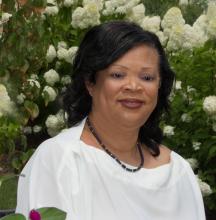African Americans With Anxiety: How to Overcome Unique Obstacles
African Americans With Anxiety: How to Overcome Unique Obstacles

More than 40 million adults in the United States suffer from some form of anxiety. Sadly, only one-third recognize what may be happening and talk to their doctor; only about one-quarter of African Americans seek mental health care, compared to 40 percent of whites.
And of these who do seek help, many African Americans face an additional obstacle. The number of African American therapists is extremely small: about 1.8 percent of licensed psychologists, 2.3 percent of all psychiatrists, and 7 percent of licensed social workers. Many African Americans worry that their therapist may not be able to understand and help them if they don’t share a cultural background.
Talk to Your Doctor
When talking to your doctor, make sure you do the following:
- Use your own words to describe your feelings, symptoms, and experiences.
- Give clear examples: “Lately, rather than driving over a bridge, I will take the long way around.” or “At night for no reason at all I wake up with my heart pounding and feeling very, very scared.”
- Describe your physical symptoms.
- Tell your doctor how these experiences make you feel.
What Your Doctor Should Do
Once you explain what you are experiencing, your doctor will refer you to a psychologist, psychiatrist, or social worker who has expertise in treating anxiety disorders. At the first meeting, this person will gather more information about your symptoms and explain how the therapy process works.
Most will use some form of cognitive-behavioral therapy, or CBT, to help you overcome and manage your symptoms. CBT is a form of therapy that helps you understand how thoughts and feelings influence behaviors.
If You’re African American
As an African American psychologist who specializes in anxiety among African Americans, I frequently receive calls and emails from people who are concerned because their physician has referred them to a non-African American therapist. They want to know if this therapist will understand their issues. It’s an excellent and important question.
Fortunately, to be a licensed mental health professional in most states, you must receive training in multicultural issues. This means you must be trained to deliver treatment to African Americans, Latinos and Latinas, Asian Americans, and American Indians and Alaska Natives. As someone who provides that training, I know firsthand the care and commitment that goes into insuring that trainees are culturally competent.
If you are concerned about your therapist’s ability to understand African American issues, the best course of action is to simply ask.
Here are three important questions:
- Have you ever treated an African American with an anxiety disorder?
- I’m concerned that you may not understand my issues concerning being an African American female (or male) and my anxiety. Do you feel you can?
- Have you been trained in multicultural issues?
Anxiety is treatable, and with the help of a therapist who has been trained in multicultural issues, regardless of race or ethnicity, you can reclaim your life.












